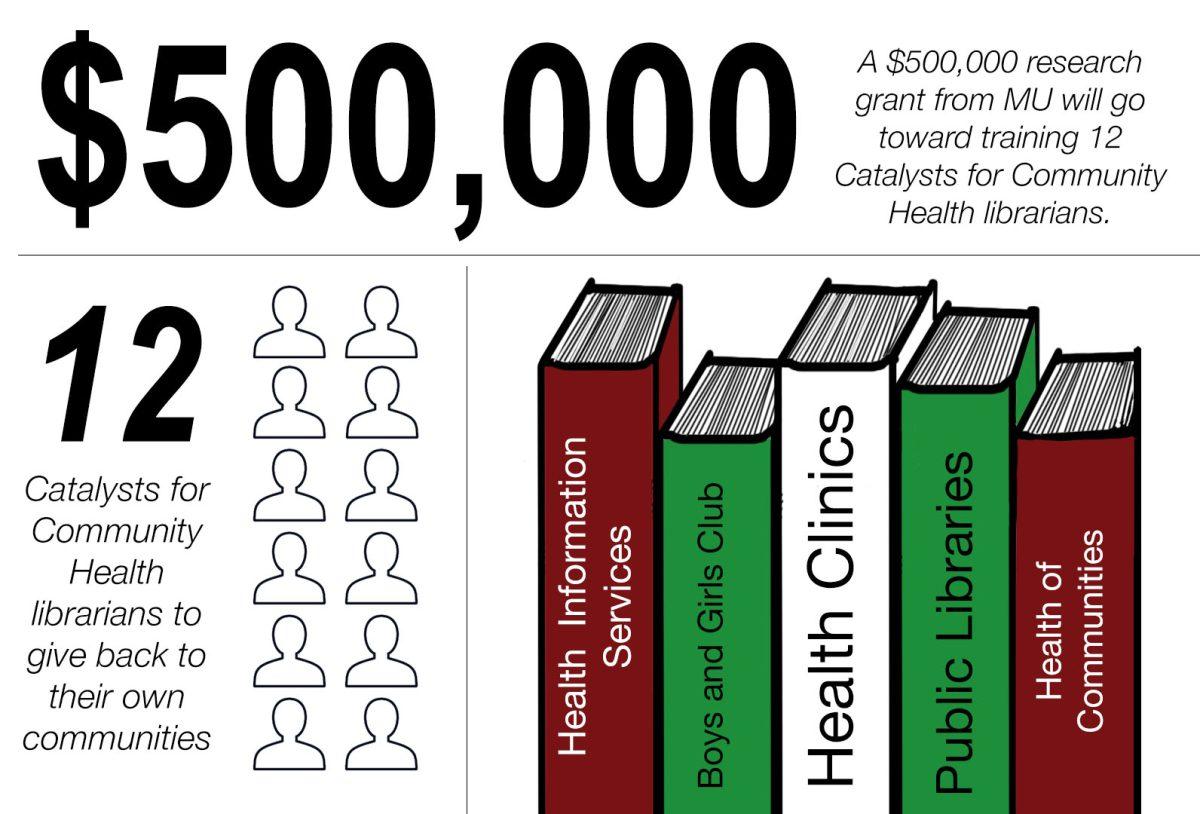In rural and underserved communities throughout the midwest, public health information is sparse, as many librarians do not have the adequate training to provide health services to the public.
To address the issue, researchers at the MU Health Sciences Library are partnering with the National Network of Libraries of Medicine to provide health information services to rural and underserved communities throughout the Midwest.
A $500,000 research grant from MU will go towards training 12 Catalysts for Community Health librarians to give back to their own communities through a new health libraries curriculum and a cohort style of learning.
The librarians are graduate students who will take classes online through MU and will be recruited from Colorado, Kansas, Missouri, Nebraska, Utah and Wyoming. They will learn ways to provide health information services in places like public libraries, health clinics and Boys & Girls Clubs.
The 12 will form a cohort – a network where they can reach out to another person within the project if they ever have issues in their communities. However, the student librarians will remain within their own communities so they know how to best serve the residents.
“In a lot of communities they deal with varying levels of health disparities,” Deb Ward, a collaborator on the project from the MU Health Sciences Library said. “So a community in rural Wyoming will deal with significantly different issues than in the areas of urban St. Louis. So by having that embedded person in that community, they are more well equipped or more well attuned with what they are dealing with within that community.”
The goal for the project is for the librarians to also gain a network of people throughout the Midwest who they can reach out to if they have an issue within their community. The partnerships and networking programs are an integral part of communities moving towards a place of better health.
“Another component is that we are trying to create this program for these 12 individuals so they go out into their communities where they already are, but they have a higher level of comfort with health information,” Chris Pryor, a collaborator from the MU Health Sciences Library said. “And that’s something that takes time when you don’t have classes in that skill area.”
The ultimate goal of the project is that communities will have more access and opportunity to health information when needed.
Through expanding networks and building partnerships with libraries throughout the Midwest, Catalysts for Community Health hopes to give people at least the opportunity to access information about their health and well-being, and to see a small part of the community get healthier.
“We are also addressing wellness,” Jenny Bossaller, principal investigator of the project, said. “Health and wellness information, we’re looking at the whole person.”
The grant opens the door for communities to receive information that is accessible and impactful, which will spread a wide net on what it means for everyone to have access to public health information.
_Edited by Laura Evans | [email protected]_














